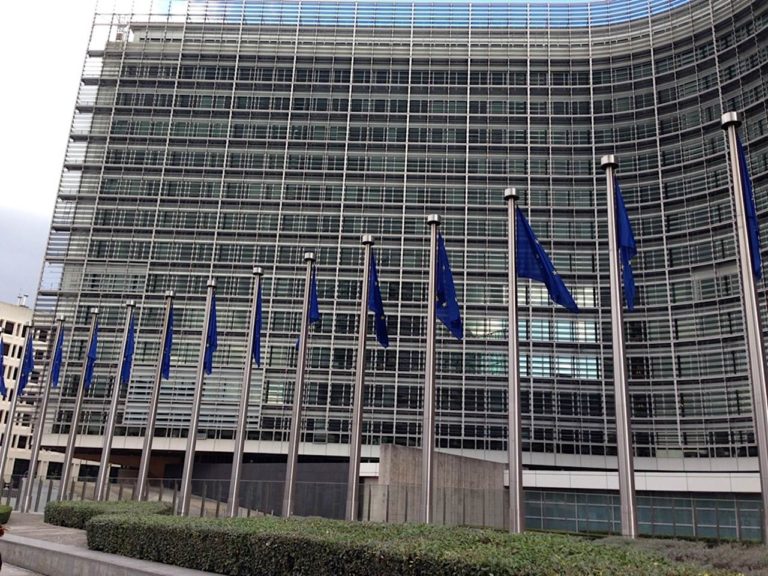Highlights from the Past Weeks
CW 14 / Monday, 3 to Friday, 7 April: Green Week / Not in session;
CSAM I – ADDITIONAL IMPACT ASSESSMENT OF THE LIBE COMMITTEE: In the meeting of the Civil Liberties Committee last week, the additional impact assessment on the CSAM Regulation was presented. The result of the Ecorys study is an explicit criticism of the EU Commission’s proposal.
While recognising the overall benefits of the measures for the protection of children, it is also noted that the regulation would have a disproportionately negative impact on a number of fundamental rights of European citizens, including the violation of the right to freedom of expression and the right to private life. The conclusions of the study highlight that, according to the case law of the ECJ, the obligations imposed on providers cannot be considered proportionate to the objective pursued.
The study notes that the issue of end-to-end encryption and its use in private communications should have been examined as a key component in the Commission’s impact assessment. It also points out the dangers of inadequate encryption.
The impact assessment also points out that some of the techniques to detect, report and remove new CSAMs and grooming are not sufficiently reliable and could lead to many false negatives and positives and subsequently to a burden on investigative authorities.
The study is not yet publicly available. A leaked draft can be found here (PDF) (see also Euractiv).
CSAM II – FEMM COMMITTEE PUBLISHES OPINION: Last week, the FEMM Committee’s opinion on the proposal against online child abuse content was published (PDF).
The rapporteur of the opinion proposes, among other things: “As from August 2024, if there is no entry into force of the proposed regulation, the regime in place should be the one of the interim derogation, until such adoption is envisaged.”
A debate on the draft FEMM opinion is scheduled for 25 April, and the deadline for amendments is 5 May. The adoption of the FEMM opinion is scheduled for 23 June.
CSAM III – IRISH PARLIAMENT CONCERNED ABOUT WORKLOAD AND FREEDOMS: “As the headquarters of several large service providers are located in Ireland, there may be a particular burden placed on Irish national authorities in this regard,” writes the Oireachtas Justice Committee in its opinion (PDF) on the proposed regulation. For the Committee, the Brussels proposal is “unprecedented in requiring indiscriminate scanning of digital communications and cloud storage”. The regulation would also compromise the security of online services by “requiring firms to either remove end-to-end encryption or introduce backdoors”. The regulation is “counterproductive” as it takes too many legal risks, the parliamentary committee concluded.
PRIVACY – LIBE COMMITTEE REJECTS TADPF: Last Thursday, MEPs in the Civil Liberties Committee unanimously adopted the draft report (PDF) on the EU-US Data Privacy Framework (TADPF).
While acknowledging that the proposed EU-US data protection framework is an improvement over previous frameworks, the report stresses that it does not provide sufficient safeguards and does not justify an adequacy decision on the transfer of personal data.
The Committee calls on the Commission not to adopt the draft adequacy decision it submitted in December 2022.
The report is expected to be presented to the plenary for adoption as an own-initiative resolution. A date for the plenary vote has not yet been set, but could possibly take place in the week of 8-11 May 2023 (see EP press release and Euractiv press release).
ARTIFICIAL INTELLIGENCE I – ANOTHER MILESTONE IN EP: The (shadow) rapporteurs concluded deliberations on final provisions, enforcement, governance, standardisation and definitions in the AI Act in a policy session on Thursday.
The most sensitive part remains the ban on practices, as the German Liberals are trying to impose a ban on general surveillance, which is a red line for the EPP. The provision on the classification of high-risk systems (Art. 6) is largely stable, with the idea that AI developers must notify the competent national authorities if they consider that their system does not pose a significant risk. However, the Greens insist that national authorities must examine each notification within three months, although developers can launch their AI software in the meantime (see Euractiv).
Already today, Monday, they will meet again in two consecutive sessions. The policy session will focus on Article 5 (prohibited AI practices), Article 6 (high-risk AI), Annex III (list of high-risk AI practices) and general AI.
ARTIFICIAL INTELLIGENCE II – EDPB SET UP CHATGPT TASKFORCE: The European data protection authorities have set up a task force to address data protection concerns related to ChatGPT. The decision follows scrutiny by several national authorities.
In the meantime, the Italian data protection authority has set OpenAI a deadline of 30 April to take a number of remedial actions. This includes finding a legal basis, explaining how the chatbot uses users’ data and running an information campaign to inform people that their data will be used to train algorithms. The Spanish authority, which had requested the discussion of ChatGPT at the EDPB meeting, also launched an investigation into the AI model. The French CNIL has received five complaints against the model to date (see Euractiv).
ARTIFICIAL INTELLIGENCE III – US LAUNCHES PUBLIC CONSULTATION: In the US, too, the government is preparing for possible regulatory measures for artificial intelligence systems. The National Telecommunications and Information Administration (NTIA) has launched a public consultation on this. The deadline for feedback is 12 June (see press release NTIA).
FREEDOM OF THE MEDIA – DRAFT REPORT IN THE CULTURE COMMITTEE: The Parliament’s Culture and Education Committee has published its draft report on the European Media Freedom Act (EMFA) (PDF).
Media are given the right to take action not only against the removal but also against the “restriction” of their content. Platforms must give them 48 hours to respond and, in turn, process that response within 24 hours. In case of disagreement, the dispute must be dealt with by the future European Board for Media Services, which will bring together the media regulators. In future, if platforms refuse to recognise a medium, the national authority must seek clarification and, if the disagreement persists, the European Council must be consulted.
The amendments proposed by rapporteur S. Verheyen (EPP, DE) include measures to strengthen the independence of the new European Board for Media Services, excluding the Commission from its activities, limiting the provisions on media market concentration and specifying the aspects that national regulators can target with regard to foreign media companies (see Euractiv).
DIGITAL MARKETS ACT – COMMISSION ADOPTS IMPLEMENTING RULES FOR THE DIGITAL MARKETS ACT: The European Commission has published its implementing regulation for the Digital Markets Act (DMA).
The European Union’s new rules require large technology companies (so-called “gatekeepers”) to notify the Commission if they have significant market power in core platform services. These gatekeepers will provide the Commission’s enforcement authorities with information on the main platform services offered, the number of users as well as their annual turnover for the last three years, their market value and the EU Member States in which they operate.
According to a second annex, companies’ reports should not exceed 50 pages in total and up to 30 pages for each core platform they operate.
Potential gatekeepers must notify the Commission by 3 July 2023 that their services fall within the scope of the Act. The Commission will review these designations by 6 September 2023. The DMA’s prohibitions and obligations will become legally binding on 6 March 2024 (Politico Pro, paywall).
INFRASTRUCTURE – ITRE COMMITTEE RAPPORTEURS: The rapporteur, A. Mituta (Renew, RO) and the EPP shadow rapporteur, A. Winzig (DE), have been joined by Socialist B. Voassi (IT) and the Green N. Nienass (DE) (see EP Legislative Observatory).
The Commission was concerned that the dossier had not attracted the necessary attention, as several important dossiers had ended up at ITRE at about the same time. This concern suggests that the EU executive fears that the EU Council could water down the dossier and that the Parliament does not have enough political influence to oppose it. This was already the case with the Broadband Cost Reduction Directive (which also started as a regulation). Indeed, several EU Member States are already pushing for minimum harmonisation, especially those whose legal frameworks are already more advanced and do not want to worsen their current situation (see Euractiv).
GERMANY – CORNERSTONES AGAINST DIGITAL VIOLENCE: Last week, the German Minister of Justice presented key points for a law on protection against digital violence. In essence, this involves the establishment of rights to information for victims of digital violence (the German Federal Ministry of Justice (BMJ) mentions insults, death threats, etc. as examples) and the corresponding procedures for timely information, the establishment of account blocks ordered by a court and limited in time, as well as the continuation of the obligation to appoint a domestic agent for service of process (see BMJ, DE).
Relevant publications, including from the EP Think Tank:
Selected consultations of the EU Commission
- Radio equipment -change to the technical specifications for wired charging – Feedback on the delegated regulation: 12 April to 10 May 2023
- Virtual worlds (metaverses) – a vision for openness, safety and respect – Call for Evidence: 5 April to 3 May 2023
- Net Zero Industry Act – feedback on the regulation: 20 March to 11 June 2023 (extended)
- European Critical Raw Materials Act – Feedback on the regulation: 20 March 2023 to 11 June 2023 (extended)
- High-speed broadband services in the EU – Review of the rules – Feedback on the regulation: 27 February – 16 May 2023
- The future of the electronic communications sector and its infrastructure – Consultation: 23 February – 19 May 2023
- New product priorities in Ecodesign for Sustainable Products – Call for Evidence: 31 January to 12 May 2023
Outlook for the Current Week
Here you will find a list of the upcoming dates of the European Parliament and an overview of the agenda for the coming plenary session week. The meeting calendar for 2023 is available here (PDF).
You can find an overview of the most important dates of the week of the Council here or the meeting calendar here.
The official calendar as well as the programme of the Swedish Presidency can be found on the corresponding website.
Council appointments include:
Summits and Ministerial Meetings:
- None
Preparatory Bodies:
- Working Party on Audiovisual Sector and Media (including EMFA), Monday, 17 April (Agenda);
- Working Party on Competitiveness and Growth (Industry) (incl. the Chips Act), Monday, 17 April (Agenda);
- Working Party on Cooperation in Criminal Matters (COPEN), Monday, 17 April (Agenda), Tuesday, 18 April (Agenda), Thursday, 20 April and Friday, 21 April (Agenda);
- Working Party on Competition (including DMA), Tuesday 18 April (Agenda);
- Working Party on Law Enforcement Group (Police), Tuesday, 18 April (Agenda);
- Working Party on Telecommunications and Information Society, Tuesday, 18 April and Thursday, 20 April;
- Working Party on Consumer Protection and Information, Tuesday, 18 April (Agenda) and Friday, 21 April (Agenda);
- Working Party on Information Exchange and Privacy (DAPIX), Wednesday, 19 April (Agenda);
- Working Party on Intellectual Property, Tuesday, 18 April (Agenda) and Wednesday, 19 April;
- Working Party on Direct Taxation, Wednesday, 19 April (Agenda);
- Working Party on Competitiveness and Growth (Single Market) (including TTC, GIA), Wednesday, 19 April and Friday, 21 April;
- Working Party on Tax Issues (Indirect Taxation) (including VAT in the Digital Age), Thursday, 20 April;
- Horizontal Working Party on Cyber Issues, Thursday, 20 April and Friday, 21 April;
- COREPER I (i.a. Data Act, Chips Act), Wednesday, 19 April (Agenda) and Friday 21 April;
- Coreper II, Wednesday, 19 April (Agenda);
Information about the weekly Commission meeting can be found on the website of the Commission in the preview (PDF) or (at short notice) in the current agenda. The recommendation on piracy in online live sporting events is expected on 3 April.
The following topics are on the agenda for this week:
- Cyber package
- Cyber Solidarity Act
- Cybersecurity Skills Academy
- Digital skills and education package
- Recommendation on enabling factors for digital education
- Recommendation on improving the provision of digital skills in education and training
- Bank crisis management and deposit insurance package
- Review of the bank recovery and resolution directive
- Review of the deposit guarantee schemes directive
- Review of the single resolution mechanism regulation
The judicial calendar of the ECJ can be found here.
European Parliament Committees
CW 15 / Tuesday, 11 to Thursday, 13 April: Political Group and Committee Meeting Week (Brussels);
LIBE Committee (Civil Liberties)
Current Meetings
- Thursday, 13 April 9.00-12.30 (Brussels)
Extract from the provisional agenda
…
13 April 2023, 10.00 – 11.00
- Complementary Impact Assessment of the proposal for a regulation laying down the rules to prevent and combat child sexual abuse (COM(2022) 209 – 2022/0155(COD))
LIBE/9/11639
- Presentation of the study by the representatives of ECORYS
…
13 April 2023, 12.00 – 12.30
*** Electronic vote ***
- The adequacy of the protection afforded by the EU-U.S. Data Privacy Framework
LIBE/9/11048
| Rapporteur: | |||
| Juan Fernando López Aguilar (S&D) | RD – PE740.749v01-00 AM – PE745.289v01-00 |
||
| Responsible: | |||
| LIBE | |||
- Adoption of motion for a resolution
*** End of electronic vote ***
…
Further Meetings (calendar)
- Wednesday, 26 April 9.00-12.30 and 14.30-18.30 (Brussels)
- Monday, 27 April 9.00-12.30 (Brussels)
JURI Committee (Legal)
Current Meetings
- none
Further Meetings (calendar)
- Monday, 24 April 15.00-18.30 (Brussels)
- Tuesday, 25 April 9.00-12.30 and 14.30-18.30 (Brussels)
Dossiers Timetable (22 March 2023)
ITRE Committee (Industry)
Current Meetings
- none
Further Meetings (calendar)
- Monday, 24 April 15.00-18.30 (Brussels)
- Tuesday, 25 April 9.00-12.30 and 14.30-18.30 (Brussels)
Dossiers Timetable (4 April 2023)
IMCO Committee (Single Market)
Current Meetings
- none
Further Meetings (calendar)
- Monday, 24 April 15.00-18.30 (Brussels)
- Tuesday, 25 April 9.00-12.30 and 14.30-18.30 (Brussels)
Dossiers Timetable (March 2023)
CULT Committee (Culture)
Current Meetings
- none
Further Meetings (calendar)
- Wednesday, 26 April 9.00-12.30 and 14.30-18.30 (Brussels)
- Monday, 27 April 9.00-12.30 (Brussels)
PEGA Committee (Pegasus Investigation Committee)
Current Meetings
- Thursday, 20 April, 9.00-12.00 (Strasbourg)
Extract from the provisional agenda
The current agenda is not yet available.
Further Meetings
- Tuesday, 25 April, 15.00-18.30 (Brussels)
ING2 Committee (Special Committee on Foreign Interference)
Current Meetings
- none
Further Meetings (calendar)
- Wednesday, 26 April, 9.00-12.30 (Brussels)
Further Parliamentary Calendar Dates
- CW 16 / Monday, 17 to Thursday, 20 April: Plenary Session Week (Strasbourg);
- CW 17 / Monday, 24 to Thursday, 27 April: Committee Meeting Week (Brussels);
- CW 18 / Tuesday, 2 to Thursday, 4 May: Political Group and Committee Meeting Week (Brussels);




